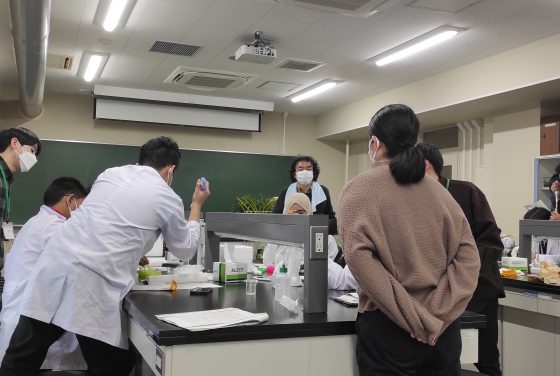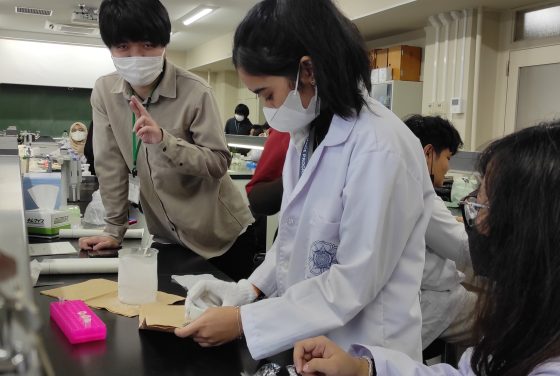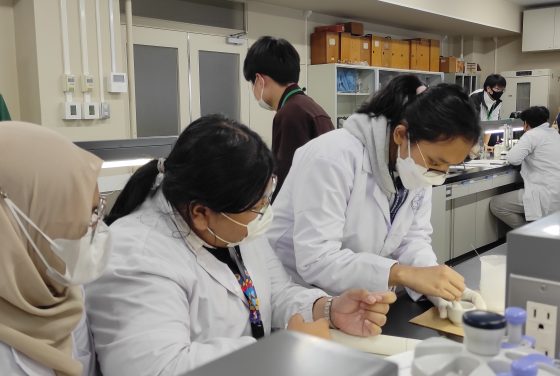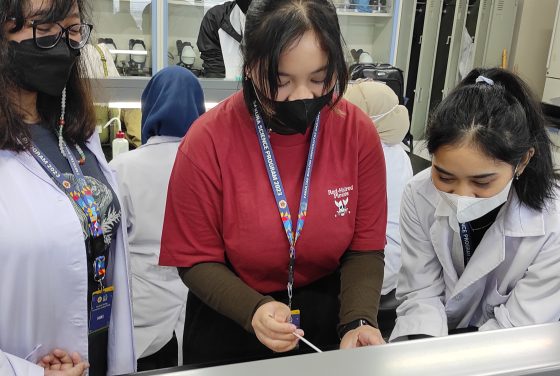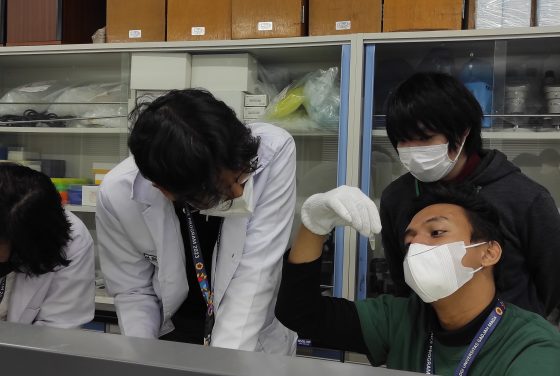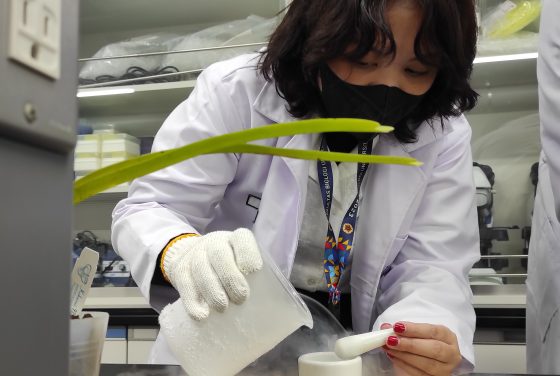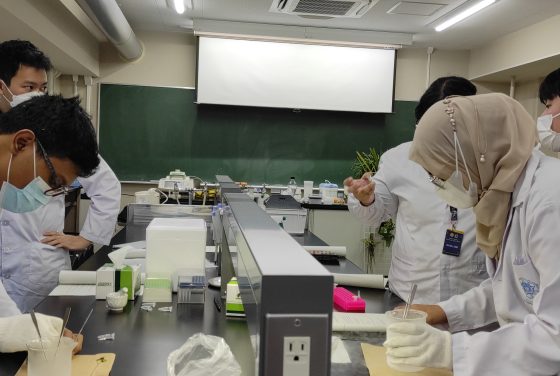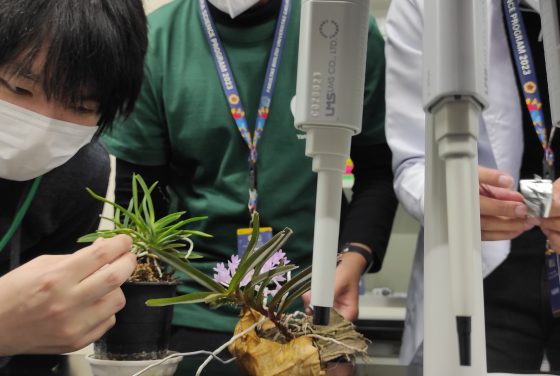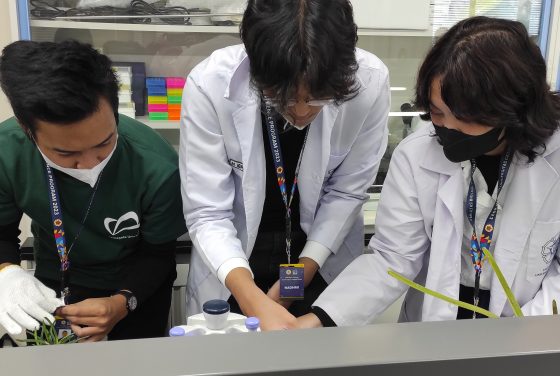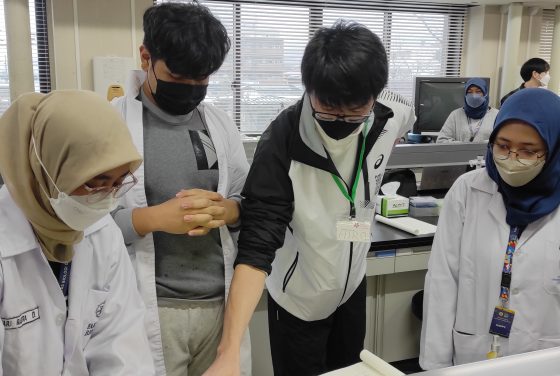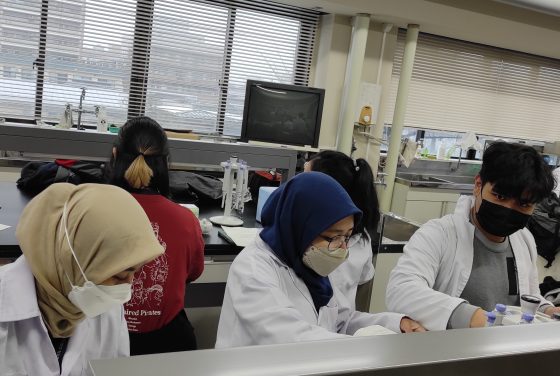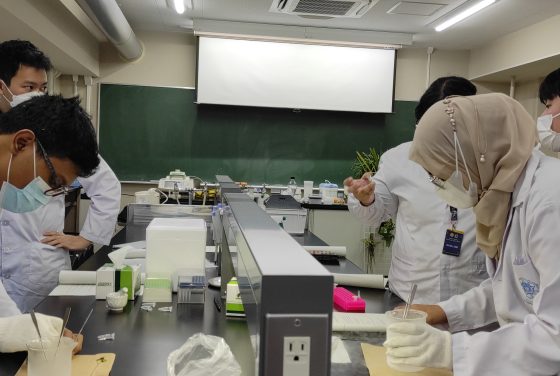Vision, Mission, Objectives, Targets, Competencies, and Learning Outcomes
Academic Monday, 30 December 2024
The Doctoral Program in Biological Sciences at the Faculty of Biology aligns with the faculty’s vision, which is to become a leading program as a center for education, research development, and community service in the field of biology, particularly tropical biology, based on Pancasila and oriented toward the interests of the nation.
The mission of the Doctoral Program in Biological Sciences at the Faculty of Biology is to:
- Conduct a quality Doctoral Program that meets contemporary demands to educate and empower the nation while maintaining national integration.
- Enhance the quality of research that supports education, scientific progress, and technological development.
- Increase community service based on social responsibility for the benefit of the people by producing graduates who are excellent, broad-minded, moral, resilient, possess leadership qualities, and uphold national identity.
- Establish continuous collaborations with educational institutions, research bodies, government agencies, business sectors, and the global community.
- Continuously improve transparent and quality management.
The objectives of the Doctoral Program in Biological Sciences at the Faculty of Biology is to produce Doctorate holders in Biology who:
- can conduct themselves as individuals of high integrity, open-minded, and responsive to scientific and technological advancements and societal development.
- are distinguished and competitive at both national and international levels, with dignity and the moral values of Pancasila.
- possess in-depth knowledge of theories, concepts, methods, principles, and biological approaches, as demonstrated through a dissertation.
- are capable of communicating their ideas and work to peers and the wider community.
- can develop scientific concepts within their field of expertise through research.
- are able to apply a multidisciplinary approach in their field of expertise.
The aims of the Doctoral Program in Biological Sciences at the Faculty of Biology, UGM, is to conduct a Doctoral program through a series of learning processes, thereby producing graduates with competencies aligned with Presidential Regulation No. 8 of 2012 concerning the Indonesian National Qualifications Framework (KKNI).
The competencies of the Doctoral Program in Biological Sciences are structured based on the Indonesian National Qualifications Framework (KKNI), as outlined in Presidential Regulation No. 8 of 2012 concerning the KKNI. The KKNI represents the quality and identity of the Indonesian nation in relation to its national education and training system. These competencies encompass four dimensions: Knowledge, Research, Insight, and Attitude. The detailed formulation of competencies is provided in Table bellow:
| Code | Ability Dimension | Competency | Competence Description |
| A | Knowledge | Able to enhance community services through research and development | 1. Able to develop oneself and be innovative in seeking scientific truth through more efficient theories, concepts, and models to solve problems within their field of expertise. 2. Able to advance knowledge and technology in their field or professional practice through research, producing creative, original, and tested work. |
| B | Research | Able to participate in scientific development activities through research | 1. Able to apply and develop knowledge and skills in their area of expertise to find solutions or solve complex, cross-disciplinary problems. 2. Able to manage, lead, and advance research to address scientific and technological problems in their field using interdisciplinary, multidisciplinary, and transdisciplinary approaches. 3. Able to create new concepts in their field through research. |
| C | Insight | Able to solve problems within similar fields of knowledge | 1. Able to solve scientific and technological issues in their field using interdisciplinary, multidisciplinary, and transdisciplinary approaches. 2. Able to transform their scientific environment with the concepts they develop. |
| D | Attitude | Able to work independently of their scientific environment (Creative) | 1. Responsive and open to scientific and technological advancements and societal issues. 2. Able to communicate and share ideas and results with peers and the broader community. 3. Able to respect the ideas and work of other experts and develop science and technology beneficial to humanity, acknowledged nationally, regionally, and internationally. |
| PLO CODE | REGULAR PATHWAY | BY RESEARCH PATHWAY |
| ATTITUDE Upon completing this Programme, the graduates demonstrate an attitude of being able to: | ||
| AT1 | contribute to improving the quality of life in society, nation and state, and the progress of civilization based on Pancasila; | participate actively in the progress of society, the nation, and the state through innovative and relevant biological research, based on Pancasila. |
| AT2 | demonstrate honesty, responsibility, self-confidence, emotional maturity, ethics, and awareness of being a lifelong learner; | demonstrate high scientific integrity, responsibility, self-confidence, and emotional maturity throughout every stage of research as well as recognize their role as lifelong learners who continuously develop themselves. |
| AT3 | internalize academic values, norms and ethics; | internalize academic norms and ethics in depth, including matters of data ownership, copyright, and scientific collaboration. |
| GENERAL SKILLS After completing this Programme, the graduates will be able to: | ||
| GS1 | discover or develop new scientific theories/concepts/ideas in biology; | formulate, design, or develop original, new scientific theories, concepts, or ideas in the field of biology through deep and critical independent research. |
| GS2 | contribute to the development and practice of the field of biology through scientific research based on scientific principles and ethics through interdisciplinary, multidisciplinary, or transdisciplinary approaches in solving problems in the field of biology; | identify, integrate, and modify biological knowledge from various disciplines (interdisciplinary, multidisciplinary, or transdisciplinary) to analyse and solve complex scientific problems. |
| GS3 | managing and formulating valid and accountable research data by upholding academic integrity and prioritizing anti-plagiarism; | organize, interpret, and evaluate valid and accountable research data, and uphold academic integrity and anti-plagiarism in all publications and reports. |
| GS4 | communicate research results through reputable media and scientific publications to the academic community and/or directly to the wider community; and | construct and present research findings effectively through publications in reputable scientific media (international journals, proceedings) and/or direct presentation to the academic community and the wider public. |
| GS5 | demonstrate academic leadership and increase independent learning capacity. | Plan, lead, and esvaluate research progress, as well as demonstrate capabillity to do self-directed learning and continuously develop their capacity |
| KNOWLEDGE After completing this Programme, the graduates will be able to: | ||
| KN1 | explain the scientific philosophy of biology which is related in depth to structure, function, diversity, reproduction, evolution and engineering of biological systems; | explain and critique the philosophy and scientific paradigms of biology in depth, especially regarding the structure, function, diversity, reproduction, evolution, and engineering of biological systems, in order to formulate strong scientific arguments. |
| KN2 | assess substantial and leading theory in the field of biology/biological resources in order to support education for sustainable development; and | assess substantial and cutting-edge theories in the field of biology to construct sustainable solutions that can be implemented. |
| KN3 | synthesize and generate new concepts in the fields of biology and applied biology. | synthesize and generate new concepts in the fields of biology and applied biology that are relevant to scientific advancements and industry needs. |
| SPECIFIC SKILLS After completing this Programme, the graduates will be able to: | ||
| SS1 | deepen and expand knowledge in the field of biology to produce models or methods or develop theories that are original, tested and innovative through research with an interdisciplinary, multidisciplinary or transdisciplinary approach; | do synthesizing, organizing, and building knowledge in the field of biology to produce original, tested, and innovative models, methods, or theories through research with an interdisciplinary, multidisciplinary, or transdisciplinary approach |
| SS2 | propose new solutions or recommend proposed solutions to solve biological resource problems in a sustainable manner through an interdisciplinary or multidisciplinary approach to fund deduction or induction; and | analyse and evaluate various solutions to solve biological resource problems sustainably through a deductive or inductive approach, then formulating the innovative and most effective solution. |
| SS3 | apply the philosophy of biological systems in developing biological concepts in the areas of food, health, bioenergy, biomaterial and/or the environment | develop and apply the philosophy of biological systems in organizing biological concepts in the fields of food, health, bioenergy, biomaterials, and/or the environment in an innovative and targeted manner. |




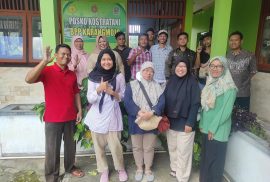
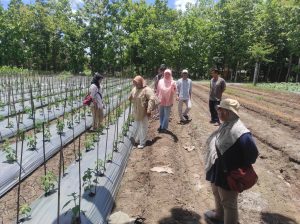
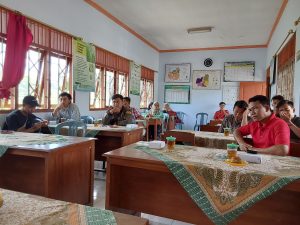 The discussions held during the FGD and field visits covered various topics, including the use of technology in agriculture, organic farming practices, natural resource management, and marketing strategies for agricultural products. The results of these discussions will form the basis for developing more relevant and responsive educational, research, and community service programs tailored to the needs of millennial farmers.
The discussions held during the FGD and field visits covered various topics, including the use of technology in agriculture, organic farming practices, natural resource management, and marketing strategies for agricultural products. The results of these discussions will form the basis for developing more relevant and responsive educational, research, and community service programs tailored to the needs of millennial farmers.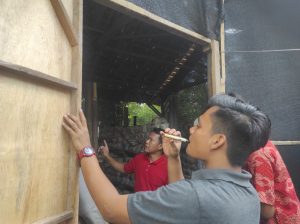 and millennial farmers, bringing tangible positive impacts to the advancement of the agricultural sector in Indonesia. This activity is closely related to several Sustainable Development Goals (SDGs) adopted by the United Nations. The dialogue and collaboration between the Faculty of Biology UGM and millennial farmers can increase farmers’ productivity and income (SDG 1: No Poverty) and support sustainable agriculture that enhances food security and nutrition (SDG 2: Zero Hunger). This initiative also develops more relevant educational programs for millennial farmers (SDG 4: Quality Education), supports economic growth and job creation in the agricultural sector (SDG 8: Decent Work and Economic Growth), and encourages innovation and modernization of agricultural practices (SDG 9: Industry, Innovation, and Infrastructure). The focus on organic farming practices and natural resource management supports sustainable production and consumption (SDG 12: Responsible Consumption and Production), and the sustainable agriculture discussed in the FGD contributes to climate change mitigation (SDG 13: Climate Action). Furthermore, the collaboration between the Faculty of Biology UGM and millennial farmers is a concrete example of partnerships that support the achievement of sustainable development goals (SDG 17: Partnerships for the Goals).
and millennial farmers, bringing tangible positive impacts to the advancement of the agricultural sector in Indonesia. This activity is closely related to several Sustainable Development Goals (SDGs) adopted by the United Nations. The dialogue and collaboration between the Faculty of Biology UGM and millennial farmers can increase farmers’ productivity and income (SDG 1: No Poverty) and support sustainable agriculture that enhances food security and nutrition (SDG 2: Zero Hunger). This initiative also develops more relevant educational programs for millennial farmers (SDG 4: Quality Education), supports economic growth and job creation in the agricultural sector (SDG 8: Decent Work and Economic Growth), and encourages innovation and modernization of agricultural practices (SDG 9: Industry, Innovation, and Infrastructure). The focus on organic farming practices and natural resource management supports sustainable production and consumption (SDG 12: Responsible Consumption and Production), and the sustainable agriculture discussed in the FGD contributes to climate change mitigation (SDG 13: Climate Action). Furthermore, the collaboration between the Faculty of Biology UGM and millennial farmers is a concrete example of partnerships that support the achievement of sustainable development goals (SDG 17: Partnerships for the Goals).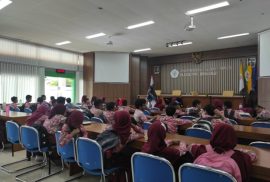

 In the Histology & Embryology Section, students were introduced to microscopes and how to use them. They also observed the diffusion process and colorful microscopic preparations. Meanwhile, in the Animal Anatomy Section, students observed skeletal preparations, internal organs, and several anatomical specimens. The children showed remarkable enthusiasm and deep curiosity while learning in the laboratory. The visit also included a question-and-answer session, where the children were given the opportunity to ask questions about interesting science topics to the Master’s and Bachelor’s students conducting research in the laboratory. Intelligent and creative questions flowed, reflecting the growing interest in science among the young generation.
In the Histology & Embryology Section, students were introduced to microscopes and how to use them. They also observed the diffusion process and colorful microscopic preparations. Meanwhile, in the Animal Anatomy Section, students observed skeletal preparations, internal organs, and several anatomical specimens. The children showed remarkable enthusiasm and deep curiosity while learning in the laboratory. The visit also included a question-and-answer session, where the children were given the opportunity to ask questions about interesting science topics to the Master’s and Bachelor’s students conducting research in the laboratory. Intelligent and creative questions flowed, reflecting the growing interest in science among the young generation.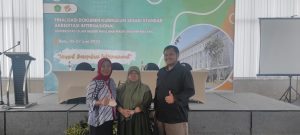
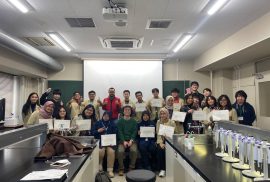
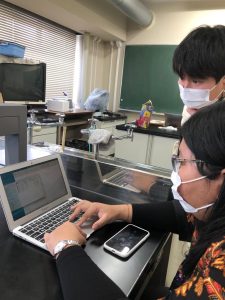 On this very morning (22/02/2023), the day started with a clear sky and the temperatures in Yamagata were still cold (-5℃). We began our morning at 8 am as usual, heading to Yamagata University and arriving around 9 am ready to have breakfast brought by Prof. Yokoyama. After another delicious breakfast we all head to the laboratory to prepare our task for the day.
On this very morning (22/02/2023), the day started with a clear sky and the temperatures in Yamagata were still cold (-5℃). We began our morning at 8 am as usual, heading to Yamagata University and arriving around 9 am ready to have breakfast brought by Prof. Yokoyama. After another delicious breakfast we all head to the laboratory to prepare our task for the day. 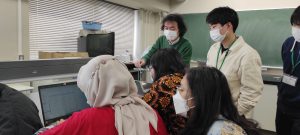
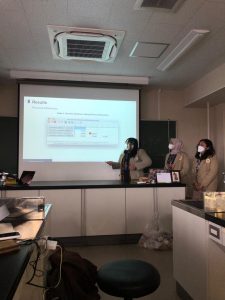 After all the groups presented their worked and answer the questions, Prof. Jun Yokoyama handed us the certificates of achievement for successfully completing the Sakura Science program 2023 to all participants. The certificates were signed by the President of the Japan Science and Technology Agency, Dr. Hashimoto Kazuhito. Prof Yokoyama read the certificate to each of the participants of the Sakura Science program 2023 in that awarding ceremony.
After all the groups presented their worked and answer the questions, Prof. Jun Yokoyama handed us the certificates of achievement for successfully completing the Sakura Science program 2023 to all participants. The certificates were signed by the President of the Japan Science and Technology Agency, Dr. Hashimoto Kazuhito. Prof Yokoyama read the certificate to each of the participants of the Sakura Science program 2023 in that awarding ceremony. 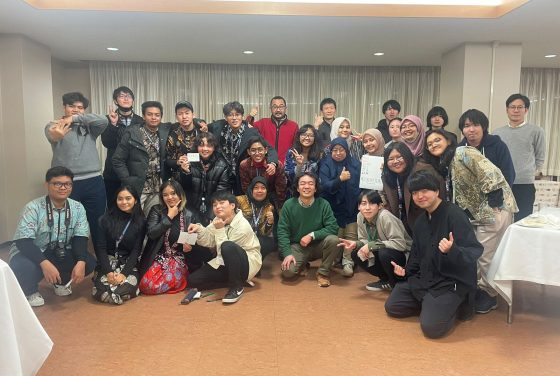
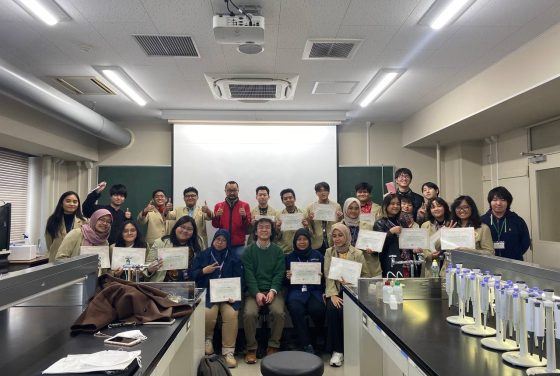

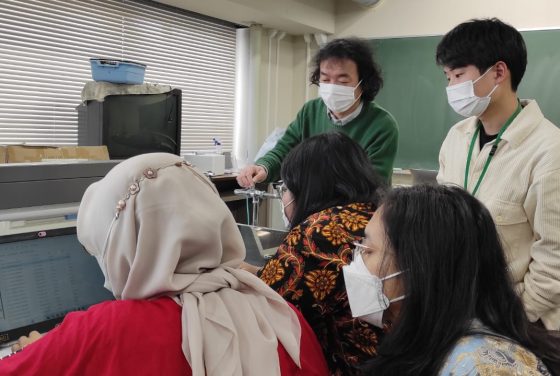
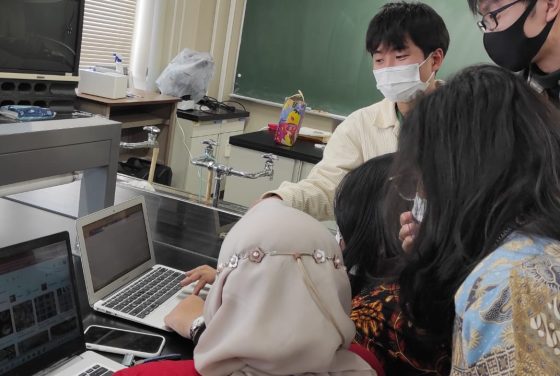
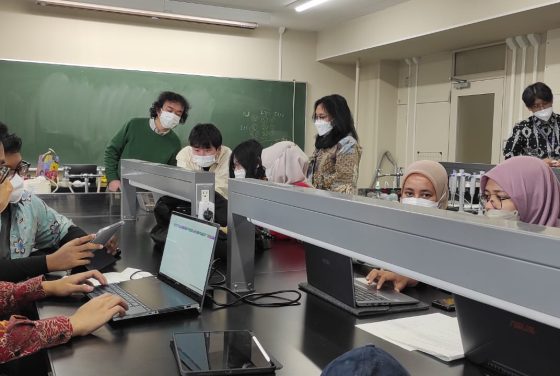
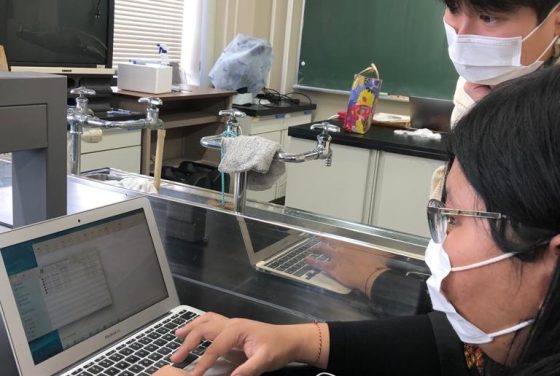
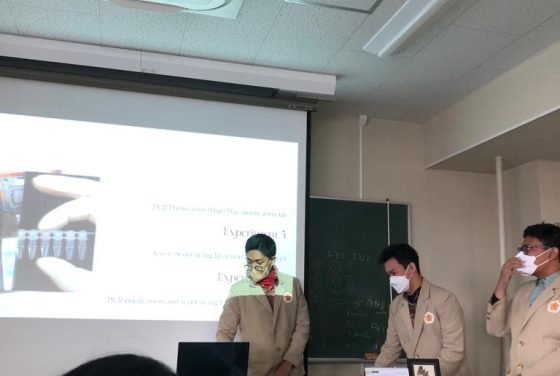
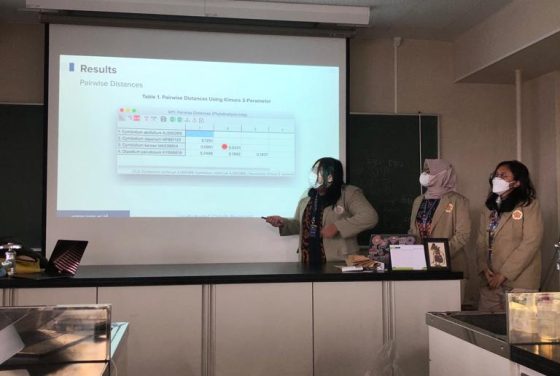
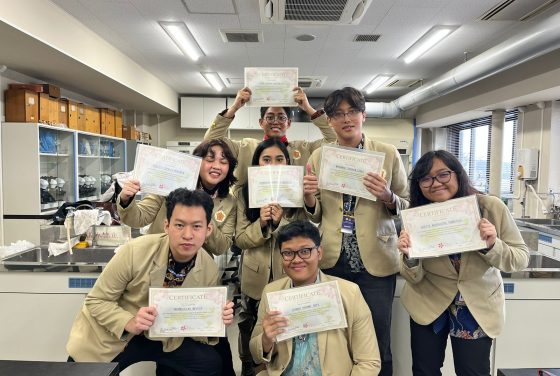


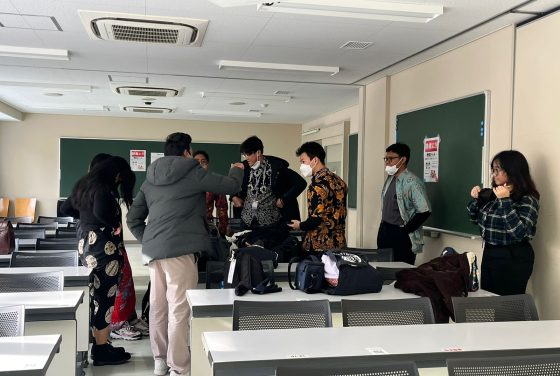
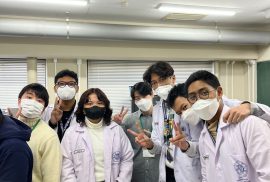
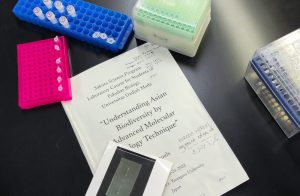

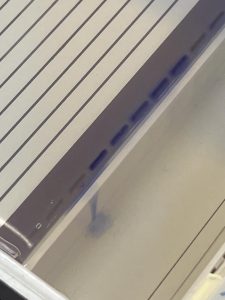 sequencing reaction.
sequencing reaction. 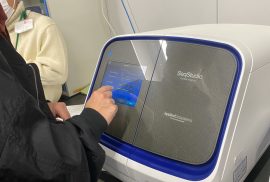
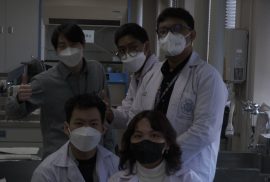
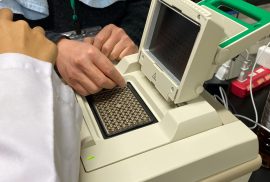
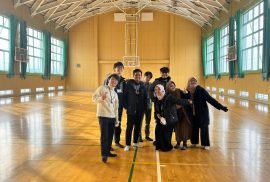

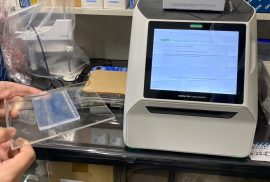
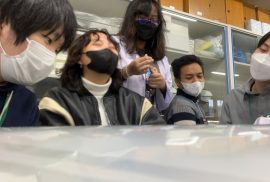
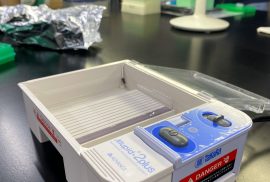
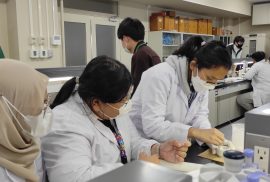
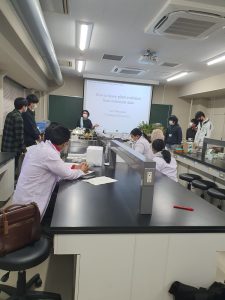
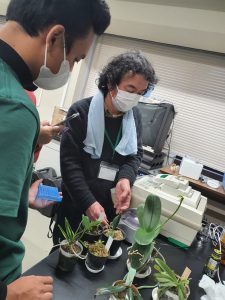

 In the afternoon, between the continuous experiments, we were given warm and savory chicken curry with naan on the side. After we finished our DNA isolation, we stored them away to be put through PCR and excitedly waited for the results tomorrow, hoping that our efforts will pay off. At 17.30, we once again had dinner at the Indian restaurant from the night before, where we ate curry that we chose beforehand, all the while chatting with the lab assistants who joined us that evening. With the evening ending on a great note, we parted ways once again to roam the city and eventually call it a night. (Niki&Reiz)
In the afternoon, between the continuous experiments, we were given warm and savory chicken curry with naan on the side. After we finished our DNA isolation, we stored them away to be put through PCR and excitedly waited for the results tomorrow, hoping that our efforts will pay off. At 17.30, we once again had dinner at the Indian restaurant from the night before, where we ate curry that we chose beforehand, all the while chatting with the lab assistants who joined us that evening. With the evening ending on a great note, we parted ways once again to roam the city and eventually call it a night. (Niki&Reiz)